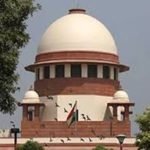The respondent joined the Bank as a messenger in 1997. In April 2008, complaints arose regarding the respondent taking bribes for coordinating loan sanctions. A notice dated 15.11.2008 was issued concerning his absence from duty and executing loan documents at his residence and bank branch.
A formal Memo of Charge was issued on 05.01.2010, alleging he took illegal gratification for sanctioning loans. He was accused of acting as a middleman for loan sanction and disbursement, taking illegal gratification, and unauthorized absence from duty. Specific individuals (Fakruddin, Bali Yadav, Arun Kumar, Mani Mishra, Chandsi Shah, Gharbharan Prasad, Krishna Prasad Ram) and their loan amounts were listed.
Disciplinary Proceedings: The respondent submitted his reply on 12.02.2010. An Inquiry Officer was appointed on 10.03.2010, who submitted a report on 04.10.2010, finding the respondent guilty. A show cause notice was issued on 29.12.2010 regarding penalty.
Initial Punishment: The Disciplinary Authority, on 08.01.2011, imposed the punishment of ‘dismissal from service’ upon the respondent.
Appeals and High Court: The Appellate Authority, on 07.12.2012, reduced the penalty from ‘dismissal’ to ‘removal from service’ with superannuation benefits, taking a compassionate view. The respondent then preferred a writ petition before the High Court. The Single Bench of the High Court set aside the punishment and directed reinstatement with back wages, also granting liberty to initiate fresh proceedings if necessary. The Bank then preferred an intra-court appeal to the Division Bench, which was dismissed. The present appeal arises from this.
Law Involved:
The legal principles revolve around the scope of judicial review in disciplinary proceedings.
The Supreme Court’s jurisdiction under Article 226 or Article 32 or Article 136 of the Constitution of India is circumscribed by limits.
The case references previous judgments, particularly SBI v. Ajai Kumar Srivastava and Boloram Bordoloi v. Lakhimi Gaolia Bank and Others concerning the power of judicial review in disciplinary inquiries. These cases establish that judicial review focuses on correcting errors of law or procedural errors leading to manifest injustice or violation of principles of natural justice, and not on re-adjudicating the merits of the case.
Reasoning:
Inquiry Irregularities: The Single Bench found that the Division Bench of the High Court failed to notice factual issues. Learned counsel for the appellants argued that subsequent disciplinary proceedings were initiated with independent charges, a case where the Appellate Authority reduced the penalty from ‘dismissal’ to ‘removal from service’ with superannuation benefits.
Discrimination/Scapegoat Argument: The Single Bench noted that other officers were involved and not punished, singling out the respondent. It was argued the respondent was a Class IV employee at the lowest level and had no authority to sanction or process loans, making him a “scapegoat”. Two other officers, the Branch Manager and Field Officer, were only removed from service.
Lack of Evidence: The respondent denied the charges. Testimony from PW-6/Dilip Kumar Mehta and PW-7/Ajay Demta suggested the respondent’s work and conduct were good. The Inquiry Officer recorded evidence from multiple witnesses, but the Inquiry Officer’s report and the Disciplinary Authority’s findings were not supported by sufficient evidence. The alleged loan beneficiaries (loanees) appeared as departmental witnesses, but PW-1/Fakruddin stated he was forced to pay ₹5000/- without proper documents for his loan sanction.
Opportunity for Fresh Inquiry: The Single Bench had granted liberty to the Bank to initiate a fresh inquiry. However, the Bank chose not to, indicating that no error was found by the Single Bench.
Leniency by Appellate Authority: The Appellate Authority, despite finding gross misconduct, reduced the penalty. The Supreme Court found that the Appellate Authority’s decision to reduce the penalty showed leniency.
Holding:
The Supreme Court found that the reasons for the Single Bench and Division Bench’s opinion were not justified. orders passed by the Single Bench and the Division Benchof the High Court cannot be legally sustained and set aside. The order passed by the Appellate Authority on 07.12.2012, which imposed the punishment of ‘removal from service’ with superannuation benefits, stands restored.
STATE BANK OF INDIA & OTHERS V. RAMADHAR SAO
Supreme Court: 2025 INSC 1010 (DoJ 20-08-2025)






